2019:
Social Marble
in the Center of Europe
Monuments and
contemporary myths
W71.1
︎
technical info
Installation
For solo exhibition Social Marble in the Center of Europe, OK16, Minsk, Belarus, 2019
Installation
For solo exhibition Social Marble in the Center of Europe, OK16, Minsk, Belarus, 2019
Project curator:
Olga Shparaga
Texts:
Sergey Shabohin and Olga Shparaga
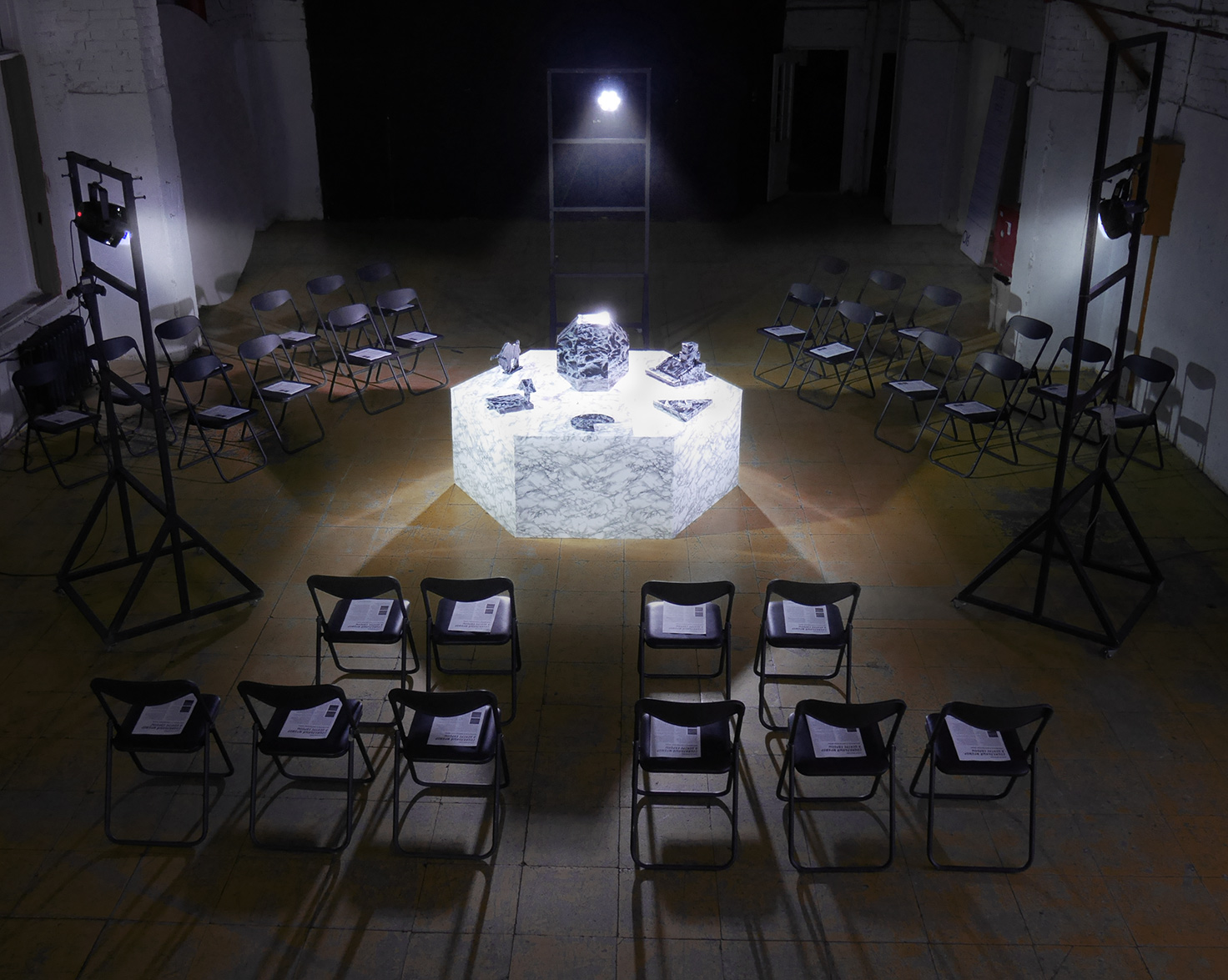
Installation
Social Marble in the
Center of Europe,
Social Marble in the
Center of Europe,
OK16, Minsk, Belarus,
2019
2019
The first works of the ‘Social Marble’ series are from the year 2011. The impetus for its realisation was a
particular creative practice of the Minsk subway
cleaning service observed by the artist. Unable to wash away the caustic pigments of graffiti on the marble walls of the subway entrances and underpasses, the workers of the cleaning service began to paste over them with marble-patterned film. This adhesive vinyl film is often used to protect kitchen countertops, store shelves, and other items — it truly is a ‘social marble’,
a budget option accessible to all. At the same time, the structure of real marble is a result of complex geo-and bio-processes that are similar in their consistent, yet chaotic ualities similar to the social ones. So it came to be that the adhesive film with the marble pattern pasted onto the marble walls served as the starting point for the entire work series.
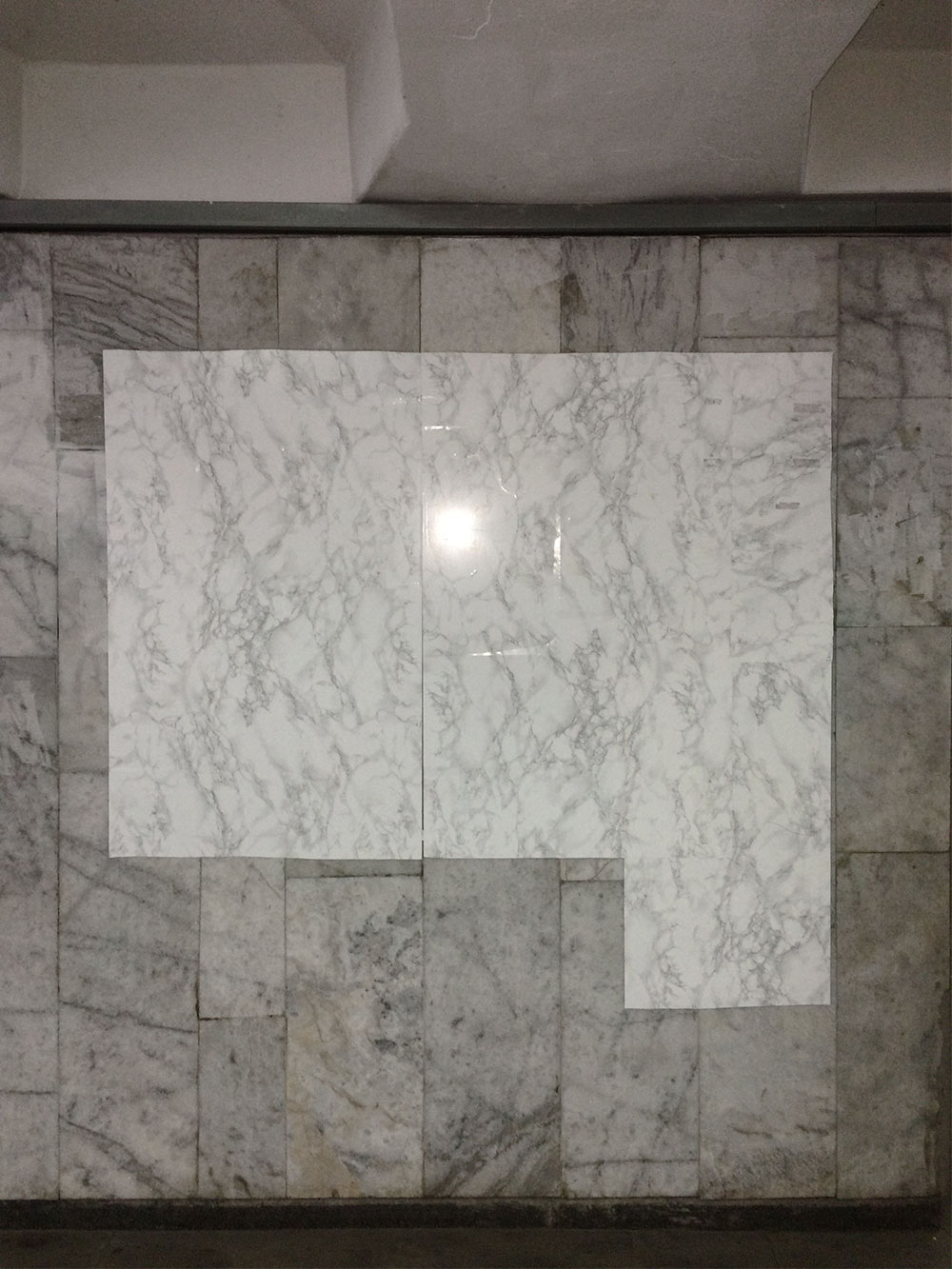

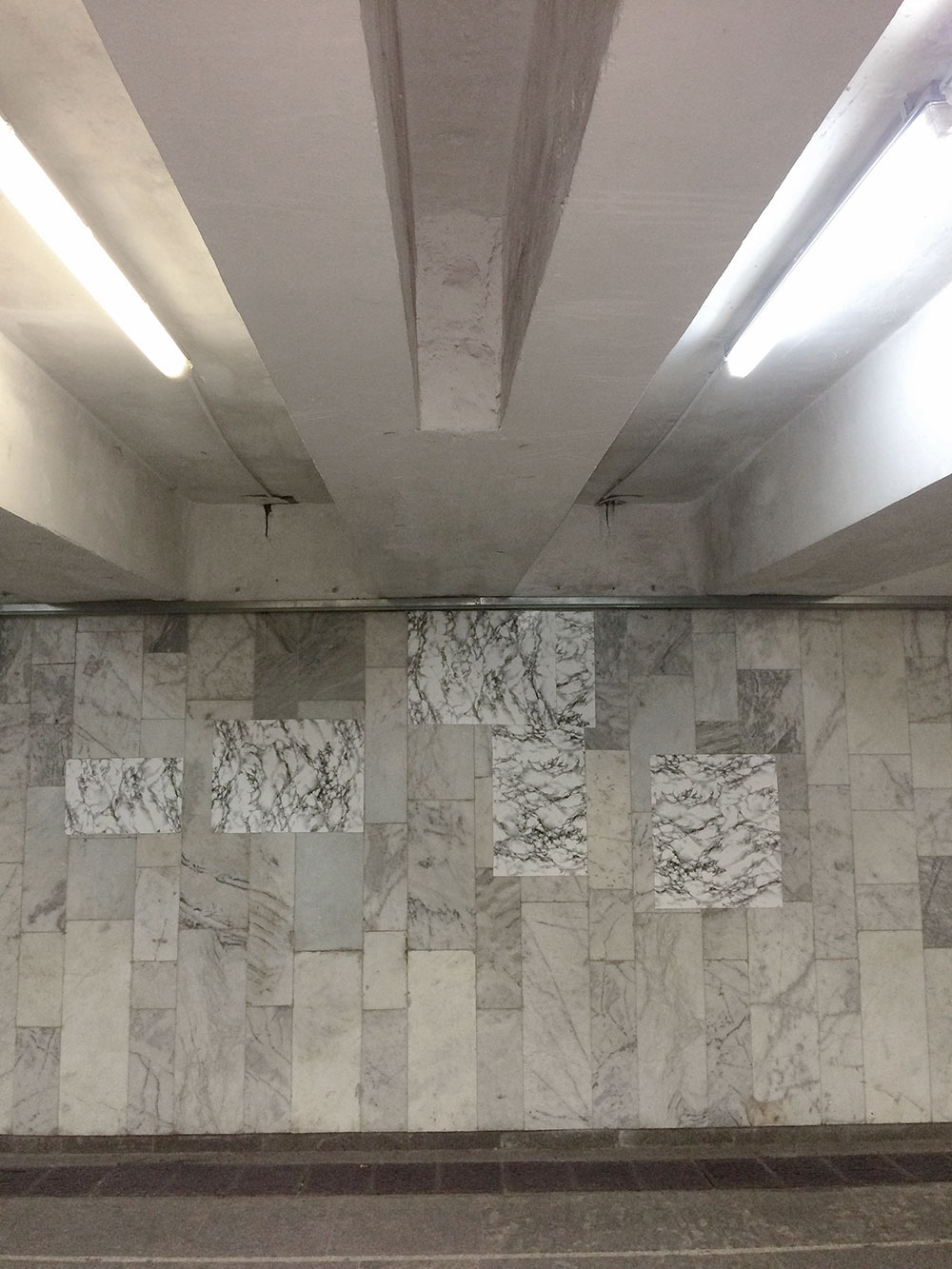
The installation is conceived as a podium in the
shape of a wind rose displaying a number of objects created specifically for the project, ‘Social Marble in
the Centre of Europe’. All objects are made from cheap materials and pasted over with marble-patterned film with each one referring to a certain contemporary myth about Belarus. Moreover, many of those myths deal with various European ideas about history, memory, politics, economics, culture or religion: as they ‘settle’ in Belarus they are refracted here in a
specific way. Reflection on the myth-making uses
examples of Belarusian monumental art: each of the objects references a specific building, memorial,
monument or sculptural frieze.
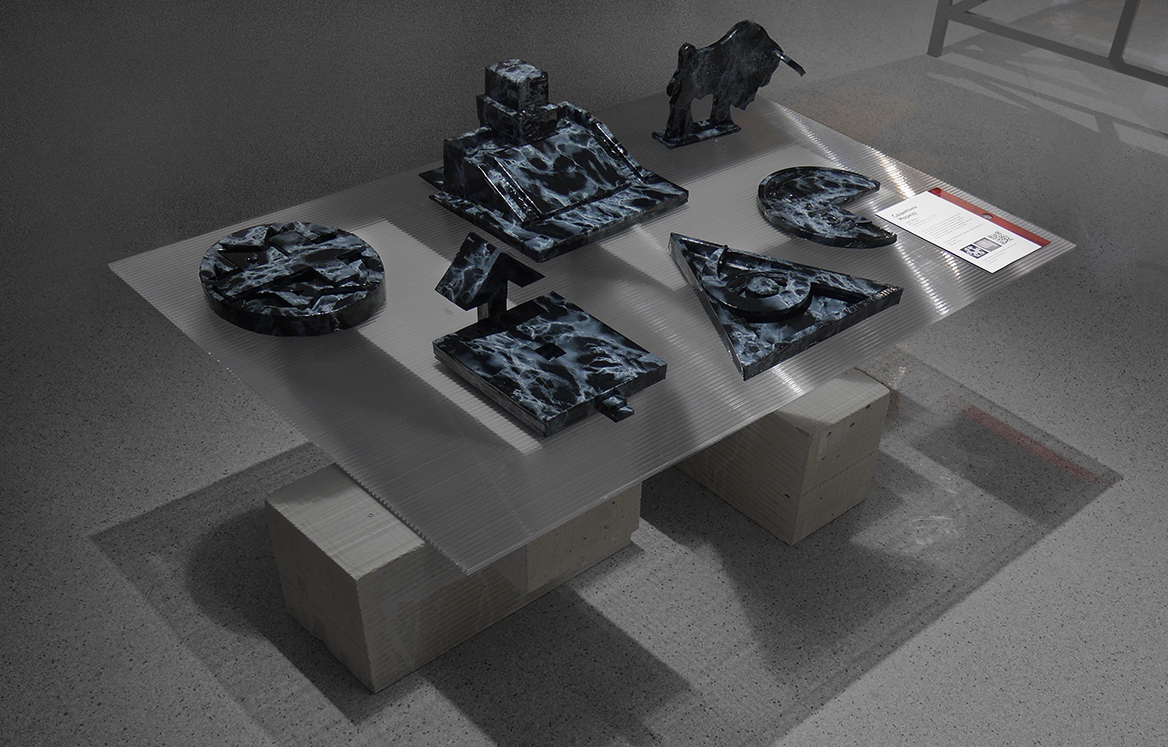
Series Social Marble
in the Center of Europe,
Art Belarus Gallery, ZAL #2,
Minsk, Belarus,
2019
in the Center of Europe,
Art Belarus Gallery, ZAL #2,
Minsk, Belarus,
2019
Models in imitation marble precisely communicate
the main ideas of the project: searching for fakes and the verification of the purpose of myths, identifying the processes of cultural layering and discovery of
historical palimpsests, monitoring the mechanics of nation-building and state-building in Belarus. The
impression of quasi-materiality and the idea of cultural layering makes the installation seem deliberately fake, while references to ‘wildness’ of mythology gives it a theatrically pagan dimension.
According to contemporary studies of the processes of social transformation in Central and Eastern Europe, the experience of social imitation is not exclusively and specifically Belarusian. It came to be defining for the democratic changes of the last 25 years, which, in theory, were supposed to allow Eastern Europe to ‘catch up’ with Western Europe. By the end of the first decade of the 21st century it became clear that imitation of key democratic principles and institutions embraces almost the entire globe and conveys the unreadiness of those who have benefited from globalization to express solidarity with those who have lost at it. This means that today, democratic values and institutions require serious rethinking and discussion. Without those rethinking processes, the modern world can easily become a comfortable place for some and a zone of alienation for others.
According to contemporary studies of the processes of social transformation in Central and Eastern Europe, the experience of social imitation is not exclusively and specifically Belarusian. It came to be defining for the democratic changes of the last 25 years, which, in theory, were supposed to allow Eastern Europe to ‘catch up’ with Western Europe. By the end of the first decade of the 21st century it became clear that imitation of key democratic principles and institutions embraces almost the entire globe and conveys the unreadiness of those who have benefited from globalization to express solidarity with those who have lost at it. This means that today, democratic values and institutions require serious rethinking and discussion. Without those rethinking processes, the modern world can easily become a comfortable place for some and a zone of alienation for others.
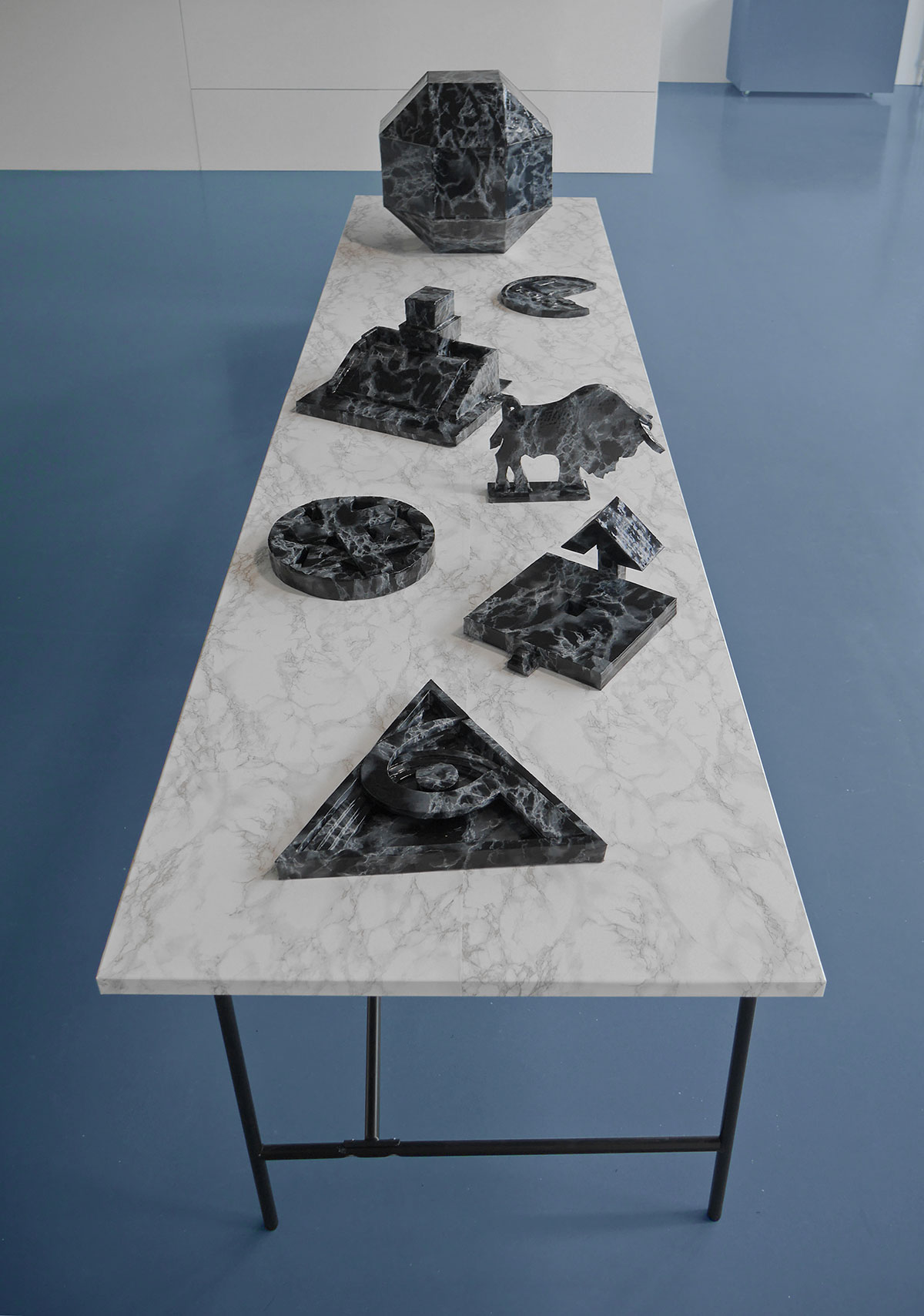
Installation
Social Marble in the
Center of Europe,
Social Marble in the
Center of Europe,
CLB Berlin, Berlin, Germany,
2019
2019